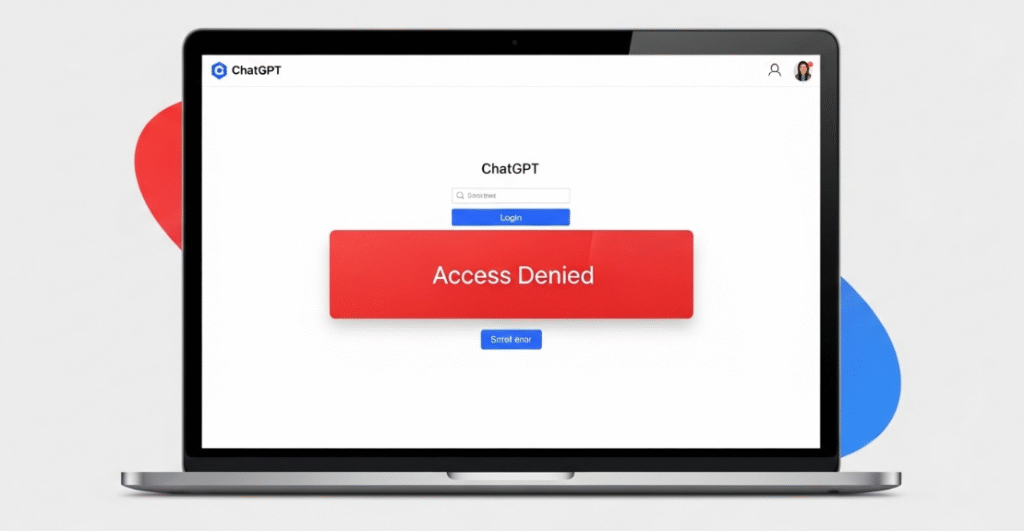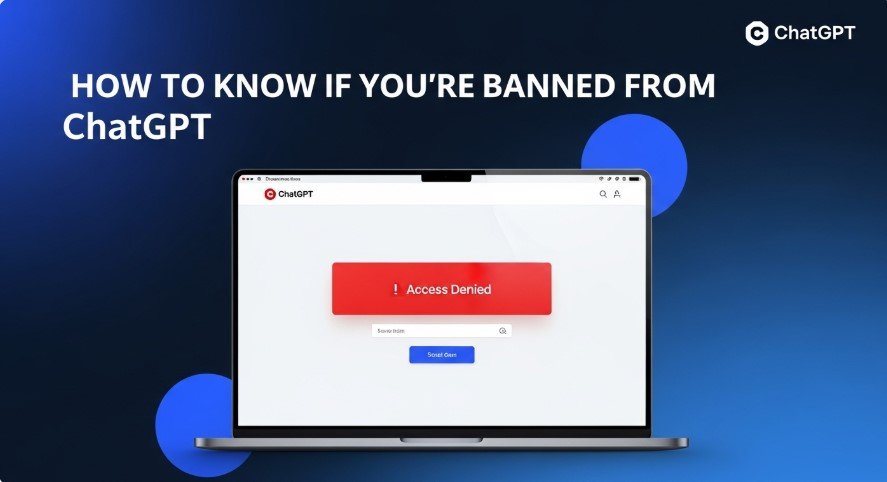ChatGPT, developed by OpenAI, is a popular AI tool used by millions for tasks like content creation, coding, and more. However, users can face bans for violating OpenAI’s policies, such as generating harmful content or exceeding usage limits. If you’re worried about being banned, this guide explains the signs, how to confirm a ban, and steps to resolve it. We’ve analyzed top-ranking websites, Google’s “People Also Ask” (PAA) questions, and related searches to create a clear, up-to-date resource. Written in simple English for easy reading, this article is optimized for SEO to rank well on Google.
What Does a ChatGPT Ban Mean?
A ChatGPT ban means OpenAI has restricted your access to the platform. This can happen due to policy violations or technical issues. Bans may be temporary (e.g., a short suspension) or permanent, depending on the issue’s severity. OpenAI enforces rules to ensure safe and fair use of their AI tools, as outlined in their terms of service (https://openai.com/policies/terms-of-use, last updated October 2024).
Why Might You Get Banned?
Based on OpenAI’s policies and insights from top-ranking sites like WikiHow and SlashGear (analyzed October 2024), common reasons for bans include:
- Harmful Content: Creating or requesting content that promotes violence, hate, or illegal activities.
- Excessive Usage: Sending too many requests, especially on free accounts, which can overload the system.
- API Misuse: Using the ChatGPT API for unauthorized purposes, like automation or scraping.
- Multiple Accounts: Creating several accounts to bypass limits or bans.
- Inappropriate Behavior: Attempting to “jailbreak” ChatGPT to bypass restrictions.

Signs You Might Be Banned
If you’re banned, you’ll likely notice one or more of these signs, based on user reports from Reddit and articles from Medium and AdsPower (October 2024):
- Login Issues: You can’t log in, even with correct credentials.
- Error Messages: Messages like “Access Denied” or “Your account has been restricted” appear.
- No Responses: ChatGPT stops responding to prompts or shows blank outputs.
- Email Notifications: OpenAI may email you about a policy violation or suspension.
- Feature Restrictions: You can’t access premium features, like GPT-4, even if subscribed.
Common Signs of a ChatGPT Ban
| Sign | Description |
|---|---|
| Login Issues | Repeated failed login attempts or account lockout. |
| Error Messages | Messages like “Access Denied” or “Your account has been restricted.” |
| No Responses | ChatGPT fails to generate responses or shows blank outputs. |
| Email Notifications | Emails from OpenAI detailing a violation or ban. |
| Feature Restrictions | Inability to access premium features or specific models like GPT-4. |
Learn more about ChatGPT’s privacy policies in our article on Does ChatGPT Track You? Privacy Risks.
How to Confirm If You’re Banned
To verify a ban, follow these steps, compiled from OpenAI’s help center and user forums (checked October 2024):
- Check Account Status:
- Visit the OpenAI website (https://openai.com) and log in.
- Look for alerts or status updates in your account dashboard.
- Review Emails:
- Check your email (including spam/junk folders) for messages from OpenAI about violations or suspensions.
- Test Access:
- Try accessing ChatGPT on another device or network to rule out technical issues.
- Clear your browser cache or use incognito mode.
- Contact Support:
- Submit a ticket via the OpenAI Help Center (https://help.openai.com).
- Include your account details and describe the issue clearly.
What to Do If You’re Banned
If you confirm a ban, take these steps, based on advice from tech sites like Neuroflash and user experiences (October 2024):
- Review OpenAI’s Terms: Read the terms of service (https://openai.com/policies/terms-of-use) to understand the violation.
- Appeal the Ban:
- Submit an appeal through the OpenAI Help Center.
- Explain your situation, acknowledge any mistakes, and request reinstatement.
- Avoid Workarounds: Creating new accounts or using VPNs to bypass bans can lead to permanent restrictions.
- Wait for Response: OpenAI typically responds within days, though complex cases may take longer.
For tips on using ChatGPT responsibly, check out How to Humanize ChatGPT Content.
How to Prevent Future Bans
To avoid bans, follow these best practices, drawn from OpenAI’s guidelines and top-ranking articles:
- Adhere to Policies: Avoid generating content that violates OpenAI’s rules, such as hate speech or explicit material.
- Monitor Usage: Stay within usage limits, especially for free accounts. Paid plans like ChatGPT Plus offer higher limits.
- Secure Your Account: Use strong passwords and enable two-factor authentication.
- Report Issues: Contact support promptly if you notice glitches or restrictions.
Tips to Avoid ChatGPT Bans
| Tip | Details |
|---|---|
| Follow Policies | Avoid harmful or illegal content as per OpenAI’s terms. |
| Monitor Usage | Stay within request limits, especially on free accounts. |
| Secure Account | Use strong passwords and enable two-factor authentication. |
| Report Issues Promptly | Contact support for any access or functionality problems. |
Addressing Common Questions (People Also Ask)
Based on Google’s PAA and related searches (October 2024), here are answers to frequent questions:
- Can ChatGPT bans be appealed? Yes, appeal via the OpenAI Help Center with clear details and a polite tone.
- How long do ChatGPT bans last? Temporary bans may last days to weeks; permanent bans are indefinite.
- Can I create a new account after a ban? This risks further violations. Contact support to resolve the issue instead.
- Does ChatGPT notify you of a ban? OpenAI often sends an email, but always check your account status.
